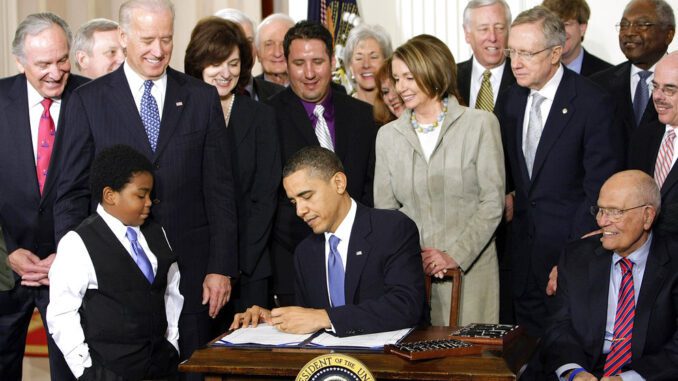
7th Law: Political attacks often reveal more about the attacker than the attacked.
Sometimes, politicians are deservedly on the receiving end of fierce criticism. No one has a right to public office, and those who do wrong — however unintentionally — are appropriately subject to questions regarding their fitness to serve.
Nevertheless, it is not the attacked who chooses whether a political attack takes place but rather the attacker. The critic chooses both whether and how to criticize, a decision that usually reflects how the attacker wishes to position themselves relative to their target. Thus, as a general rule, whenever you read of how one political actor has castigated another one, you are usually learning more about the attacker than you are about the target.
The applications of this principle are so myriad that any selection of examples seems preferential. Republican attacks on President Joe Biden over lax border security reflect the political emphasis that Republicans, not Democrats, wish to place on illegal immigration. Democratic attacks on Republicans over environmental policy reflect the higher priority that Democratic voters assign to climate change and other environmental concerns. The list goes on ad infinitum. Citizens should always bear in mind that attackers choose the subject of attacks, and that these choices generally promote the attackers’ political or policy agendas.
A corollary to this principle is that whenever you set out to grossly caricature a political opponent, you more often caricature yourself. The more extreme your descriptions of people on the other side of the aisle, the more extreme you reveal yourself to be.
8th Law: Political advice nearly always tracks the adviser’s policy preferences.
I first realized this principle back in 2009-10 when, at the same time that survey after survey indicated that Americans opposed the passage of the Affordable Care Act as introduced, Democratic political consultants were telling members that the most beneficial thing they could do politically was to pass the bill swiftly into law. There seemed to be virtually no evidence supporting this advice, and indeed, passage of the ACA ultimately led Democrats to one of the worst election performances in modern history in 2010. These signals were loudly communicated in advance by voters in multiple surveys long before the ACA was passed. I couldn’t help but wonder how it could be that professional political strategists were urging Congress to do something that was obviously bad politics and would later cost many of them their seats.
The truth only became clear after subsequent observation of the behavior of political strategists on all sides: Political strategists aren’t actually in the business of giving objective, accurate political advice. Instead, they represent a particular political vantage point, and they work to advance it. The strategists who urged passage of the ACA did so not because survey data really said this would be politically advantageous but because they believed the law would do good things and that voters would come to appreciate that once it was passed. In short, their strategic advice followed from their policy views and their political loyalties.
The story of the ACA is just one example. Democratic strategists will usually argue that enacting Democratic legislation is good politics; Republican strategists will argue that advancing Republican priorities is good politics. And both sides might well be correct because in modern politics politicians benefit primarily from pleasing their party base.
But the self-promoting behavior goes further than that. There are populist analysts on the right who persistently argue that America First populism is good politics; pro-traditional family activists who argue that family-friendly policies make good politics; market conservative analysts who argue that Republicans should back away from culture wars and focus on economic freedom; progressive analysts who argue that enacting sweeping progressive legislation is the best political strategy; and moderate Democratic analysts who argue that their party should turn away from identity politics to focus on kitchen-table economic concerns. In short, pretty much every commentator you see on TV is arguing that the policies he or she personally supports are politically beneficial.
The rule of thumb is: Only pay serious attention to a political analyst when they acknowledge that the position they personally favor is not a political winner. It’s rare for any of them to say this, but if one ever says: “I personally favor X, but voters do not,” that’s when you should take note. Otherwise, their analysis should be heavily discounted.
Charles Blahous is the J. Fish and Lillian F. Smith chair and senior research strategist at the Mercatus Center at George Mason University. The article first appeared in the July 25, 2023, edition of Discourse magazine published by the Mercatus Center at George Mason University.



